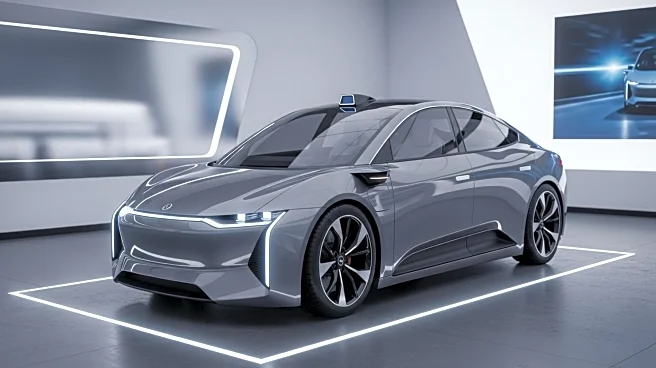What's Happening?
Nissan is advancing its self-driving vehicle technology as part of efforts to revitalize its struggling auto business. The Japanese automaker demonstrated its autonomous driving capabilities using a Nissan Ariya sedan equipped with advanced sensors and AI technology developed by Wayve. The vehicle successfully navigated through Tokyo, showcasing its ability to respond to traffic signals and pedestrians. Nissan plans to introduce these self-driving models by 2027, entering a competitive market projected to reach $2 trillion by 2030. This initiative comes as Nissan faces challenges from tariffs imposed by President Trump and a need to restructure its operations.
Why It's Important?
Nissan's push into self-driving technology is crucial for its survival and competitiveness in the global auto market. The development of autonomous vehicles represents a strategic shift towards innovation and adaptation in response to industry pressures, including tariffs and declining sales. By investing in AI-driven technology, Nissan aims to position itself as a leader in the autonomous vehicle sector, potentially attracting new customers and partnerships. This move could also influence other automakers to accelerate their own self-driving initiatives, reshaping the future of transportation and mobility.
What's Next?
Nissan's focus on self-driving technology will likely lead to further collaborations and advancements in AI and sensor technologies. The company may seek partnerships to enhance its capabilities and expand its market presence. As Nissan navigates its restructuring efforts, stakeholders will watch for updates on its autonomous vehicle rollout and potential impacts on its financial performance. The broader auto industry will monitor Nissan's progress, as successful implementation of self-driving technology could set new standards and drive competition among automakers.










